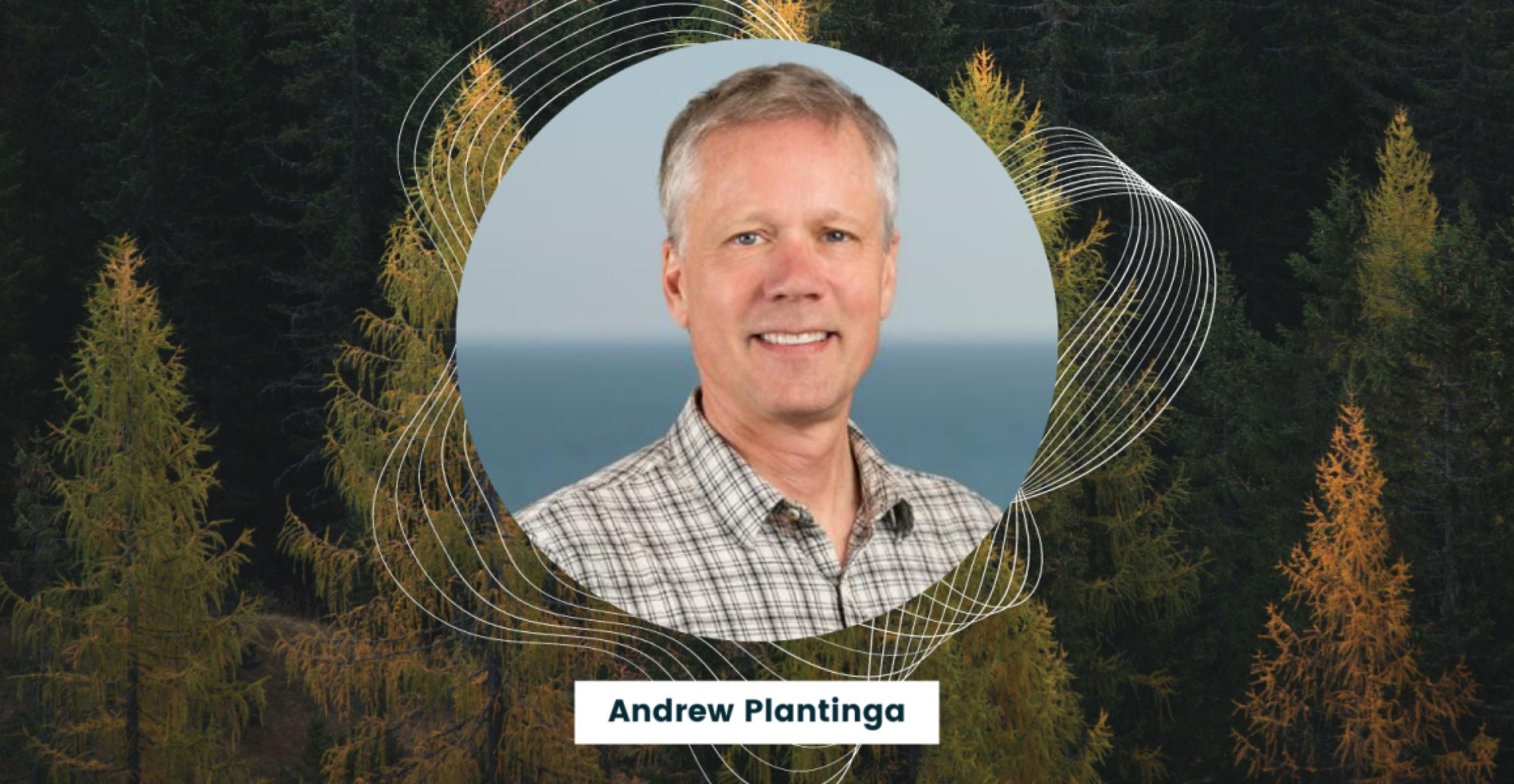
Andrew Plantinga recognized for shaping environmental policy through economic insight
Environmental degradation is more than just an ecological issue, it’s also a societal problem. It’s in humanity’s long-term interest to steward the Earth and the resources and services it provides. So why does it seem so difficult to get people to do what will serve them best over time?
The answer comes down to how incentives are laid out. By getting incentives right, we can produce the behavior we want. That’s economics 101, and precisely what Professor Andrew Plantinga of UC Santa Barbara’s Bren School of Environmental Science & Management has dedicated his career to studying.
Plantinga has been elected a fellow of the Association of Environmental and Resource Economists (AERE), which honors as many as three scholars annually. The fellowship is the highest honor bestowed in the field of environmental and resource economics, recognizing individuals that “have demonstrated a significant contribution to the advancement of the profession,” according to AERE.
“It is a proud moment for our campus to see Professor Plantinga elected as a fellow of the Association of Environmental and Resource Economists,” said Chancellor Henry T. Yang. “This prestigious recognition reflects his outstanding interdisciplinary research contributions through the integration of economics, forestry, ecology and climate science, as well as his unwavering commitment to scholarly excellence.
“Professor Plantinga’s work exemplifies the Bren School’s mission to advance sustainable environmental solutions through rigorous research and education,” Yang continued. “On behalf of the UC Santa Barbara community, I extend our heartfelt congratulations to him on this distinguished honor.”
Environmental economics
Focused on the economics of land use and climate change, Plantinga uses economic theory and models to predict land-use decisions, analyze environmental policies and understand the pressures of land development.
“I study land-use decisions by private landowners and public agencies and how those decisions affect environmental outcomes like climate and wildfire risk,” Plantinga explained. He aims to design policies that better align incentives for private landowners and public land managers with the services that society wants from the environment.
Plantinga is developing our understanding of how land markets function and how land-use policies change incentives. This enables economists, policymakers and resource managers to recognize what factors determine environmental outcomes and how these outcomes can be improved.
“Land-use decisions are central to so many important environmental outcomes,” Plantinga said. “Climate change, biodiversity, recreation, human health, wildlife habitat, water quality, wildfire, etc.” As a result, he works closely with scientists and scholars from other fields — multidisciplinary teams working on interdisciplinary problems.
Plantinga has tackled many topics over the years. For instance, he’s investigated the cost of mitigating climate change by increasing the amount of carbon sequestered in forests. He’s looked into the factors influencing land-use decisions made by public land managers. He’s also worked on designing policies to incentivize private landowners to maintain the natural ecosystems that provide valuable services, such as clean water, flood control and pollination.
A well-deserved honor
Plantinga accepted his award at the 2025 AERE Summer Conference in Santa Ana Pueblo, New Mexico.
“Dr. Plantinga’s interdisciplinary work is a superb model for how to integrate rigorous economics with rigorous natural and physical science, and to produce intuitive and policy-relevant results,” said AERE President Sheila Olmstead. “His research has not only advanced the academic frontier but also informed real-world policy across domains such as climate change mitigation and carbon sequestration, biodiversity conservation, agriculture and urbanization, wildfire management and water markets.”
One of Plantinga’s former doctoral students nominated him for the honor, but the hopeful professor knew he was up against stiff competition. “AERE Fellow is the highest honor in my field,” Plantinga said, “and nothing could have been more satisfying than to be selected, especially as I am approaching the end of my career.”
Plantinga still has plenty of issues he hopes to tackle before retiring, though. For instance, carbon offsets have emerged as an alternative in the absence of government action on climate change. The idea is to offset carbon emissions from a plane flight by paying a landowner to plant trees, for example “Markets for offsets are fraught with many problems, such as free-riding and alternate outcomes,” he said. He hopes to inform the design offset markets that can overcome these challenges.



